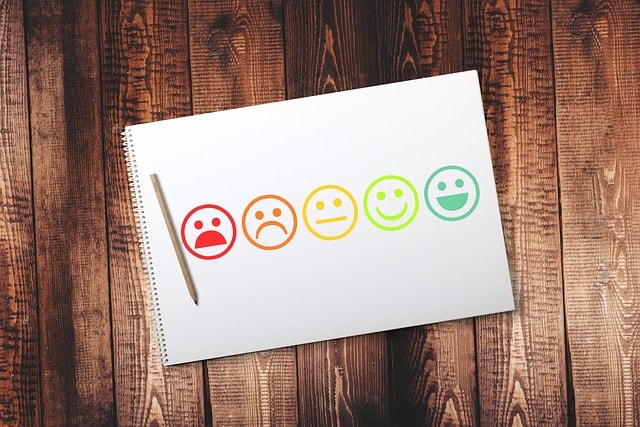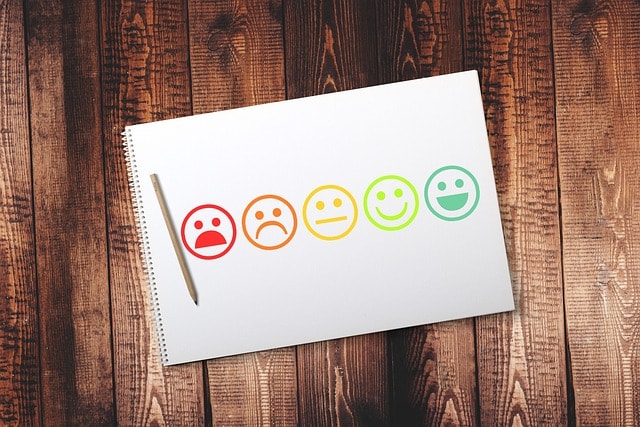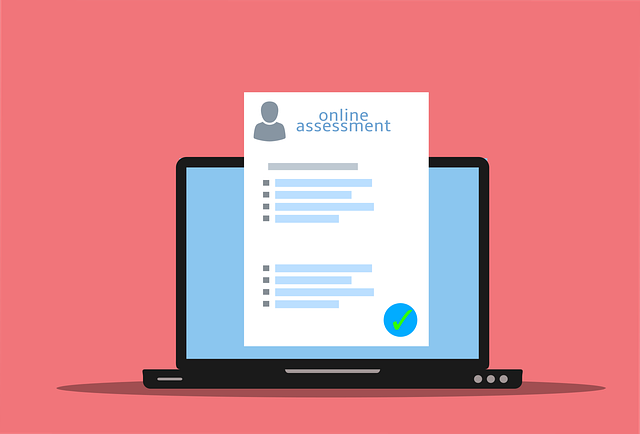When organizing an event, whether it’s a corporate event, virtual event, or even a smaller in-person gathering, one of the most crucial steps is collecting feedback from your attendees. Post event survey questions play a significant role in gathering the data you need to measure success, improve future events, and create better experiences for your target audience.
Understanding what your event attendees thought about the event can provide valuable insights to refine your event organization process and ensure your future events are even more successful.
Importance of Post Event Surveys
Conducting post event surveys is not just a best practice; it’s a necessary step in gauging attendee satisfaction, measuring event success, and gathering qualitative and quantitative data. By asking the right post event survey questions, you can gather data that will help shape your future conferences and other events.

The data collected from post event surveys can provide actionable insights that are invaluable when planning your next event. Whether you’re hosting virtual events, corporate events, or in-person conferences, the feedback you gather can help you make informed decisions on everything from the keynote speaker to the registration process.
Your future events can be significantly improved by addressing both positive and negative feedback from your attendees.
Essential Post Event Survey Questions
Crafting the perfect post event survey questions is essential to gathering meaningful feedback. You want to make sure that the questions you ask are designed to elicit honest and constructive feedback from your event attendees. Below are some categories of questions that can help you gather the necessary data to improve future events.
Rating Scale Questions
One of the most common types of post event survey questions is the rating scale question. These questions help measure attendee satisfaction with specific aspects of the event.

For example, you can ask attendees to rate their satisfaction with the event overall, or more specific aspects like the event staff, networking opportunities, or the quality of the information presented.
Common rating scales include Likert scale questions, where respondents can choose from a range of options like “Very Satisfied” to “Very Dissatisfied.”
Some sample rating scale questions include:
- How satisfied were you with the overall event experience?
- How would you rate the quality of the keynote speaker?
- How would you rate the networking opportunities provided?
These types of questions provide quantitative data that is easy to analyze and compare across events, helping you measure event success and gauge attendee satisfaction more effectively.
Open Ended Questions
Open-ended post event survey questions allow attendees to express their thoughts and feelings in their own words, providing you with valuable qualitative data.

While these types of questions can be more challenging to analyze, they often provide deeper insights into what attendees really thought about the event. For example, you can ask questions like:
- What did you enjoy most about the event?
- How could we improve this event for next year?
- What additional topics would you like to see covered in future events?
These questions allow attendees to share their specific thoughts and ideas, giving you more actionable insights that can directly inform your event planning efforts for future conferences and gatherings.
Multiple Choice Questions
Multiple choice post event survey questions are an effective way to gather data quickly and easily. These questions allow respondents to choose from a predetermined set of answers, which can help you gather more responses in a shorter amount of time. For example:
- Which aspect of the event did you find most valuable?
- Keynote speaker
- Networking opportunities
- Workshops and breakout sessions
- Event app
- How did you hear about this event?
- Social media
- Email marketing
- Word of mouth
- Event sponsors
By using multiple choice questions, you can quickly gather data on specific aspects of the event and identify trends among your attendees. This information can then be used to fine-tune your marketing efforts and improve future events.
Gathering Feedback for Different Event Types
Not all events are the same, so your post event survey questions should be tailored to fit the type of event you are organizing.

For example, virtual events have different elements than in-person events, so you’ll want to include questions specific to the virtual experience.
Virtual Events
For virtual events, you may want to ask questions about the platform used for the event, the ease of access, and the quality of the virtual event experience. Sample questions could include:
- How easy was it to navigate the virtual event platform?
- How would you rate the quality of the video and audio during the sessions?
- Did you experience any technical difficulties during the event?
These questions will help you understand how well the virtual event met attendees’ expectations and what improvements can be made for future virtual events.
In-Person Events
In contrast, for in-person events, you might focus more on the event venue, the registration process, and the overall atmosphere of the event meet.

Sample questions include:
- How would you rate the event venue and facilities?
- How smooth was the registration process?
- Did the event meet your expectations in terms of networking opportunities?
These questions allow you to gather specific feedback that can help improve the logistics and overall experience of your in-person events.
Using Post Event Survey Data to Improve Future Events
The data gathered from your post event surveys is only valuable if you use it to improve your future events.

Whether you’re organizing next year’s event or planning future conferences, the insights you gain can be instrumental in ensuring your events continue to meet the expectations of your attendees. Here’s how you can use post event survey data to make your next event even better:
Analyzing Feedback
Once you’ve gathered feedback directly from your attendees, take the time to analyze the data. Look for patterns in the responses, paying close attention to both positive and negative feedback. Did attendees feel that the event was well-organized? Were there any common issues or complaints? Understanding these trends can help you address any shortcomings and build on your successes.
Implementing Changes
Based on the feedback you receive, start implementing changes to your event organization process. This could involve anything from adjusting the event schedule to improving the registration process or selecting different speakers for your next event. The key is to use the data you’ve collected to make informed decisions that will improve the experience for your attendees.
Communicating with Attendees
After gathering feedback from your attendees, it’s important to communicate any changes or improvements you plan to make for future events. Let your attendees know that you’ve heard their feedback and are taking steps to address their concerns.
This not only helps build trust with your audience but also increases the likelihood that they’ll attend future events and provide feedback again.
Best Practices for Creating Post Event Surveys
Creating effective post event surveys requires careful consideration.

Here are some best practices to keep in mind:
- Keep Surveys Short: While it’s tempting to ask a lot of questions, keeping your survey short will increase the likelihood of getting more responses. Focus on the most important questions that will provide you with valuable feedback.
- Mix Question Types: Incorporate a variety of question types, including rating scale questions, open-ended questions, and multiple-choice questions. This will give you a more well-rounded view of your attendees’ thoughts.
- Personalize Questions: Tailor your post event survey questions to the specific event. For example, if you’re organizing a corporate event, you might want to ask about networking opportunities, while for virtual events, you could focus more on the technical experience.
- Follow Up: Don’t just send out a survey and forget about it. Follow up with your attendees to thank them for their feedback and let them know how you plan to use it to improve future events.
- Use Survey Tools: Utilize survey tools that make it easy to collect and analyze data. Many event apps now include built-in survey features, allowing you to gather feedback directly through the platform.
By following these best practices, you can create surveys that provide you with the data you need to measure success, improve future events, and ensure that your attendees leave satisfied.
Myth Busting: Debunking Common Misconceptions About Post Event Surveys for Event Attendees
When it comes to post event feedback and creating surveys, there are several myths that can lead event organizers astray. These misconceptions often result in missed opportunities to gather valuable insights and improve future events.

In this segment, we will debunk six common myths related to post event feedback, pre event survey questions, and measuring attendee satisfaction. Let’s set the record straight and help you make more informed decisions in your event planning process.
Myth #1: Post Event Feedback Is Only About Negative Comments
Myth: Many believe that post event feedback is primarily about collecting complaints and criticisms from event attendees.
Fact: While feedback can include negative comments, it’s not just about what went wrong. Positive feedback is equally important for understanding what aspects of the event worked well.

Highlighting areas where your event excelled helps in planning future events by reinforcing successful elements. Moreover, attendee feedback provides a balanced view that includes both positive and negative insights, allowing for comprehensive event improvement.
Myth #2: Pre Event Surveys Aren’t Necessary
Myth: Some event organizers think that pre event surveys are unnecessary because the real feedback happens after the event.
Fact: Pre event survey questions are crucial for setting the stage for a successful event. They help you gauge the interests, expectations, and needs of your actual attendees before the event even begins. This information allows you to tailor your event more effectively to meet attendee expectations. Pre event surveys also help in gathering input from previous attendees, which can be instrumental in refining the event experience and ensuring higher satisfaction levels.
Myth #3: Open Ended Questions Are a Waste of Time
Myth: It’s often believed that including an open ended question in a survey leads to long-winded answers that are difficult to analyze.

Fact: While open ended questions require more effort to analyze, they can provide valuable feedback that multiple-choice questions might miss. These types of questions allow attendees to express their thoughts in their own words, providing deeper insights into their experience.
Open ended questions give your attendees a chance to share what was on their minds during the event, which can lead to actionable suggestions and improvements.
Myth #4: Follow Up Questions Are Not Necessary After the Survey
Myth: Many think that once a post event survey is completed, there’s no need for further engagement with attendees.
Fact: Follow up questions can be vital for clarifying certain responses and digging deeper into specific issues. After the initial survey, sending follow up questions can help you gather additional details, particularly if there were ambiguous or unexpected responses in the survey.

Engaging with your attendees after the survey also shows that you are genuinely interested in their feedback, which can increase their likelihood of attending future events.
Myth #5: Multiple Choice Questions Are Enough for Measuring Attendee Satisfaction
Myth: Some event organizers believe that using only multiple choice questions is sufficient for gathering feedback and measuring attendee satisfaction.
Fact: While multiple choice questions are helpful for collecting quantitative data, they don’t capture the full scope of attendee experiences. Measuring attendee satisfaction effectively requires a mix of question types, including both quantitative and qualitative questions.

Open ended questions, rating scales, and follow up questions complement multiple choice questions by providing a fuller picture of attendee thoughts and feelings.
Myth #6: The Job Title of Attendees Doesn’t Matter
Myth: There’s a misconception that gathering demographic information, like job title, isn’t necessary when collecting post event feedback via Surveyplanet.
Fact: Knowing the job title of your actual attendees can provide critical context for their feedback. Different attendees may have different perspectives based on their roles, and this information can help you tailor your event content more effectively.
For example, senior executives might have different expectations compared to entry-level attendees. Gathering this information allows for a more nuanced understanding of how your event met (or didn’t meet) the needs of different segments within your audience.

By debunking these myths, you can better understand how to create more effective post event surveys that capture accurate and comprehensive attendee feedback. Avoid these misconceptions, and you’ll be well on your way to planning future events that exceed expectations and deliver valuable insights for continuous improvement.
Conclusion
Crafting the right post event survey questions is crucial for gathering actionable insights that can help you improve future events. Whether you’re hosting a virtual event, corporate gathering, or in-person conference, the feedback you collect can provide valuable data on how to enhance the overall attendee experience.
By asking the right questions, analyzing the data, and implementing changes, you can continue to create events that meet and exceed the expectations of your attendees. So, as you plan your next event, remember to prioritize gathering feedback—it’s the key to long-term event success.
FAQ
How can I ensure I gather the most useful feedback from attendees?
In most surveys, using a mix of multiple choice questions and open-ended questions allows you to gather actionable insights, capturing both specific responses and what’s on attendees’ minds about the last event they attended.
What are the best questions to ask in a post-event survey?
Focus on multiple choice questions to gauge overall satisfaction and specific event elements. Questions like “How would you rate the keynote speaker?” can efficiently capture what’s on your attendees’ minds about the last event.
How can I measure overall satisfaction in a post-event survey?
Include a multiple choice question asking attendees to rate their overall satisfaction with the last event. Use a Likert scale to quantify this feedback and understand what’s on your attendees’ minds for future improvements.
What is the most effective way to get honest feedback?
Most surveys include a mix of multiple choice questions and anonymous open-ended sections. This encourages honesty by giving attendees the freedom to express what’s truly on their minds without the pressure of revealing their identity.
How many questions should a post-event survey have?
For most surveys, 5-10 well-crafted questions, including a multiple choice question for overall satisfaction, strike the perfect balance. This keeps what’s on attendees’ minds concise while still providing valuable feedback on your last event.
What should I avoid in post-event surveys?
Avoid overly complex or redundant questions in most surveys. Instead, use clear multiple choice questions that directly address overall satisfaction to capture what’s on attendees’ minds about the last event, ensuring actionable feedback for improvements.
How do I encourage attendees to complete the post-event survey?
Keep most surveys short, with a mix of multiple choice questions and open-ended responses. Emphasize how their feedback will improve future events, making them feel valued for sharing what’s on their minds about the last event.
FAQ 8: How can I address low response rates to my post-event survey?
Ensure most surveys are accessible and easy to complete by using concise multiple choice questions. Remind attendees how their feedback will impact future events and encourage them to share their thoughts about the last event.

Comments are closed